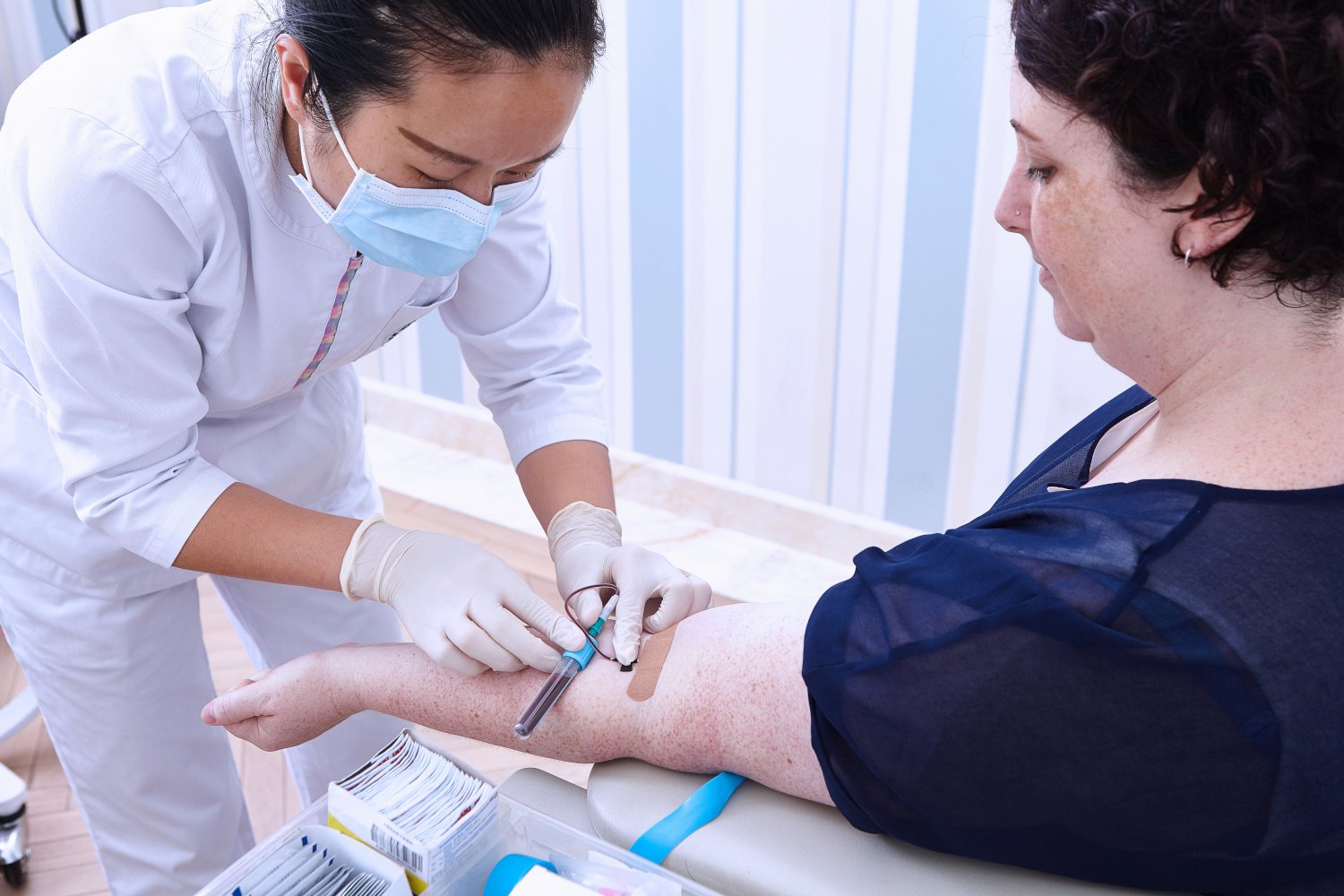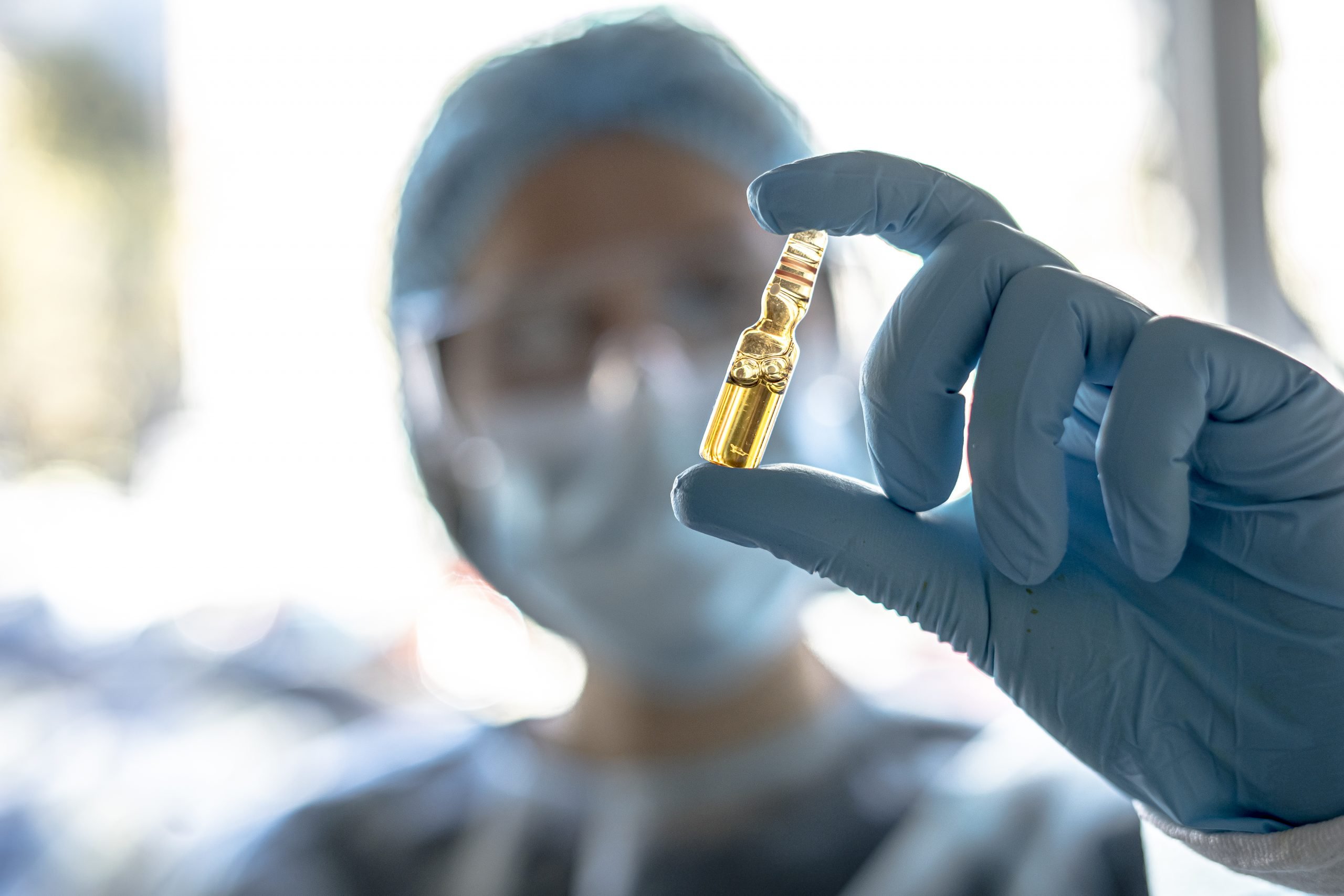Trauma can deeply affect an individual’s mental health and overall well-being, manifesting through various psychological symptoms like anxiety, depression, and post-traumatic stress disorder (PTSD). Traditional treatments often involve psychotherapy and medication, which may not be effective for everyone. The complexity of trauma arises from its roots in deeply distressing or disturbing experiences that significantly impact one’s ability to lead a normal life, making effective treatment crucial for recovery and quality of life.
Mechanism of Action: How Ketamine Treats Trauma
Glutamate System
Ketamine’s effectiveness in trauma treatment primarily stems from its impact on the brain’s glutamate system. Unlike traditional antidepressants that focus on serotonin or dopamine, ketamine directly influences glutamate, the most abundant neurotransmitter in the brain. This action helps to modulate neural activation and communication, which is often disrupted in individuals suffering from trauma. By enhancing glutamate transmission, ketamine facilitates improved mood and emotional regulation, crucial for recovering from traumatic experiences.
Synaptic Plasticity and Cognitive Function
One of the most remarkable effects of ketamine therapy for trauma is its ability to promote synaptic plasticity—essentially, the brain’s ability to adapt to new experiences, learn, and store memories. This is particularly important for trauma survivors, as their ability to process and cope with past experiences can be hindered. Ketamine stimulates the growth of new synaptic connections, which can lead to improved cognitive functions and a greater capacity to handle stressors.
Dysfunctional Neural Pathways
Trauma can create long-lasting changes in the brain, often setting up dysfunctional neural pathways that lead to persistent symptoms. Ketamine infusion therapy for trauma works by ‘resetting’ these pathways. This reset can reduce the overreaction of the brain’s fear circuits, which are typically hyperactive in trauma patients. The result is a potential decrease in trauma-related symptoms such as flashbacks, anxiety, and hyperarousal, making it easier for patients to engage in other forms of therapy and recovery.
Comparison with Traditional Trauma Treatments
Most standard therapies can take weeks or even months to provide relief and often come with challenging side effects that can discourage compliance. In contrast, ketamine can provide relief from trauma symptoms within hours or days of treatment. Such rapid efficacy not only helps alleviate suffering sooner but also can jumpstart other therapeutic interventions, creating a synergistic effect in the treatment regimen.
The Process of Ketamine Infusion Therapy
Initial Evaluation and Suitability Assessment
Ketamine therapy has emerged as a potential treatment for trauma-related symptoms, and the process of assessing its suitability is meticulous and multi-faceted. It ensures that the therapy is tailored to those who stand to gain the most, enhancing both safety and effectiveness. Below is a look at each step involved in the initial evaluation:
- Medical and Psychiatric History Review: Clinicians conduct a detailed review of the patient’s medical and psychiatric history. This step involves gathering comprehensive information about the patient’s overall health, previous treatments, and any pre-existing conditions that might influence the safety and efficacy of ketamine treatment. By understanding the full scope of the patient’s health background, clinicians can better predict possible complications or interactions and adjust the treatment plan accordingly.
- Symptom Evaluation: The specific symptoms of trauma and their impact on the patient’s life are thoroughly assessed to determine the potential benefit of ketamine therapy. This evaluation focuses on how the symptoms interfere with daily activities, the severity of psychological distress, and the resilience or vulnerability of the patient to stressors. This step is vital in deciding the therapeutic approach, as it helps tailor the intensity and focus of the ketamine sessions to the patient’s specific symptoms and needs.
- Risk Assessment: A critical component of the preparatory phase is the risk assessment, where potential risks and contraindications are meticulously evaluated to ensure that ketamine is a safe option for the patient. This includes screening for conditions such as uncontrolled hypertension, substance abuse history, or severe mental health disorders like psychosis, which could worsen with ketamine use. A thorough assessment helps mitigate potential adverse effects and ensures patient safety throughout the treatment process.
- Informed Consent: The final step before beginning treatment involves a detailed discussion with the patient about the benefits, risks, and potential outcomes of ketamine therapy to ensure they fully understand and agree to the treatment plan. This conversation also covers the procedural aspects, possible side effects, and the expectations for therapy outcomes. Ensuring informed consent is not only a legal requirement but also an ethical obligation to promote patient autonomy and trust.
The structured approach to ketamine therapy ensures that each patient receives personalized care tailored to their specific needs, maximizing the potential for positive outcomes while minimizing risks. This thorough assessment not only enhances the therapeutic effectiveness but also underscores the commitment to patient safety and informed choice.
Administration of Ketamine Infusions
Once suitability is confirmed, the actual administration of ketamine infusions takes place in a controlled clinical environment. Patients receive ketamine through an IV, allowing precise control over the dosage. The administration is conducted by trained medical professionals who monitor the patient’s vital signs and overall well-being throughout the session to ensure safety and comfort. The controlled setting also helps in addressing any immediate side effects or emotional responses that might arise during the infusion.
Duration and Frequency of Treatment Sessions
The duration and frequency vary depending on the individual’s response to the treatment and the severity of symptoms. Typically, a series of infusions are given over several weeks. Each session lasts approximately 40 minutes to an hour, with patients usually starting with a series of six infusions. Depending on how the patient reacts to the first treatments, the schedule may need to be modified.
Monitoring and Safety During Infusion
Throughout the ketamine infusion for trauma, continuous monitoring is crucial. Medical staff carefully watch the patient’s heart rate, blood pressure, and oxygen levels to detect any adverse effects early. The setting is designed to be calming, with measures in place to ensure that the patient feels secure and supported during what can be a profound and sometimes intense experience.
What to Expect During and After Sessions
Patients might experience dissociative effects, where they feel detached from their bodies and surroundings. This effect is temporary and generally subsides shortly after the session ends. Post-treatment, patients often report a sense of relief and a notable decrease in trauma-related symptoms. Patients need to arrange transportation home after treatment due to the initial sedative effects of ketamine.
Practical Aspects of Ketamine Therapy
Finding Reputable Treatment Centers
Choosing the right ketamine treatment center is paramount to ensuring the safety and effectiveness of your therapy. This decision can significantly influence your overall experience and therapeutic outcomes. Here is a guide to aid in your decision-making process:
- Check for Accreditation: It’s essential to ensure that the center for ketamine treatment holds proper accreditation. Accredited centers must meet rigorous safety standards and adhere to guidelines set by authoritative health bodies, providing you with assurance of their commitment to quality and safety. Accreditation confirms that the facility is regularly inspected and meets specific criteria for operational procedures, staff qualifications, and patient care standards, which collectively help to minimize risks associated with treatment.
- Review Staff Qualifications: The qualifications and expertise of the staff are pivotal in ensuring effective and safe ketamine infusion therapy. Seek out treatment centers where the medical professionals administering treatments have certifications and specialized training in ketamine therapy. This specialized training ensures that they are knowledgeable about the latest practices and are capable of handling any complications that might arise during treatment. The presence of skilled professionals significantly enhances the therapeutic environment and can greatly impact the efficacy of your treatment.
- Patient Testimonials and Reviews: Patient testimonials and reviews are invaluable resources when choosing a ketamine treatment center. These firsthand accounts offer insights into the quality of care provided and the effectiveness of the treatments received. By reading through the experiences of previous patients, you can measure the environment of the clinic, the professionalism of its staff, and the overall satisfaction levels of those who have undergone treatment there. This feedback can help you form a more complete picture of what to expect and decide if a center aligns with your treatment goals.
- Treatment Customization: A key feature of a reputable ketamine treatment center is its ability to offer customized treatment plans. Each patient’s needs are unique, and personalized treatment plans that consider the individual’s specific medical history, mental health status, and therapeutic goals can lead to better outcomes.
- Follow-up and Support Services: Aftercare is critical in the context of ketamine treatments, which can have profound effects on mental health. Ensuring that the clinic offers comprehensive follow-up care and support services is essential for maintaining the benefits of ketamine for trauma over the long term. These services might include scheduled check-ins, counseling, and support groups, which help manage the ongoing recovery process and address any emerging concerns post-treatment.
When selecting a ketamine treatment center, considering these aspects can greatly assist you in finding a facility that not only meets your specific needs but also ensures a safe and supportive therapeutic journey.
Cost Implications and Insurance Coverage
The financial aspect of ketamine therapy is an important consideration. Treatment costs can vary widely depending on the location, the number of sessions required, and the specific protocols used. Since trauma treatment with ketamine is still considered experimental by many insurance companies, coverage may not always be available. Patients should contact their insurance providers to understand what if any, coverage is available and also explore possible financing options or payment plans offered by the treatment centers.
Integrating Ketamine Therapy with Other Treatments
Combining with Psychotherapy
Integrating ketamine trauma therapy with psychotherapy is a holistic approach that can enhance the overall effectiveness of trauma treatment. This combination allows patients to explore traumatic memories and challenging emotions in a supportive setting, while the neurobiological effects of ketamine can help reduce the emotional pain associated with these memories. Such a dual approach enables more effective processing and integration of traumatic experiences, fostering deeper healing.
Enhancing Outcomes with EMDR
Eye Movement Desensitization and Reprocessing (EMDR) is another therapeutic technique that pairs well with ketamine and trauma recovery. EMDR involves the patient recalling distressing images while receiving bilateral sensory input, such as side-to-side eye movements or hand tapping. When used alongside ketamine, which promotes neural plasticity, EMDR can be even more effective in reducing the psychological impact of traumatic memories, aiding faster recovery from trauma symptoms.
Holistic Approach to Trauma Recovery
A holistic approach to trauma recovery often includes a combination of ketamine trauma treatments and various forms of counseling and lifestyle adjustments. Incorporating nutrition and physical wellness into the recovery program plays a critical role in supporting mental health. Nutrition counseling focuses on rebuilding and nourishing the body by emphasizing a balanced diet rich in nutrients that are essential for brain health, such as Omega-3 fatty acids, antioxidants, and amino acids. This dietary support helps mitigate the physiological stresses of trauma, potentially enhancing mood and cognitive function.
Regular physical activity, tailored to the individual’s needs and abilities, also contributes significantly to trauma recovery. Exercise not only improves physical health but also triggers the release of endorphins, often referred to as ‘feel-good’ hormones, which can naturally counter feelings of sadness or anxiety. Structured exercise regimens can include activities like yoga, which also incorporates mindfulness practices, or more vigorous aerobic exercises, depending on the individual’s preferences and physical condition.
Mindfulness, through techniques such as meditation, deep breathing exercises, and guided imagery, teaches individuals to focus on the present moment and cultivate an attitude of acceptance regarding their internal experiences. This practice can reduce symptoms of stress and anxiety, improving overall emotional resilience. Additionally, community support plays an invaluable role in recovery by providing a network of understanding and acceptance. Engaging in group therapy, participating in community arts programs, and attending support groups are all activities that foster connections with others, reinforcing a sense of belonging and support.
For anyone considering ketamine treatment for trauma, it’s crucial to make informed decisions based on a thorough understanding of the treatment’s benefits and risks. Consulting with medical professionals who specialize in ketamine treatments, reviewing the latest research, and considering personal health circumstances are all important steps in this process.


























